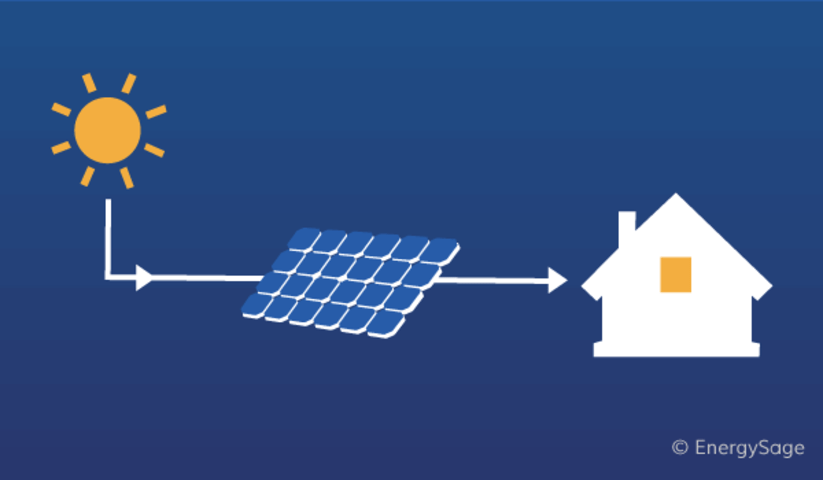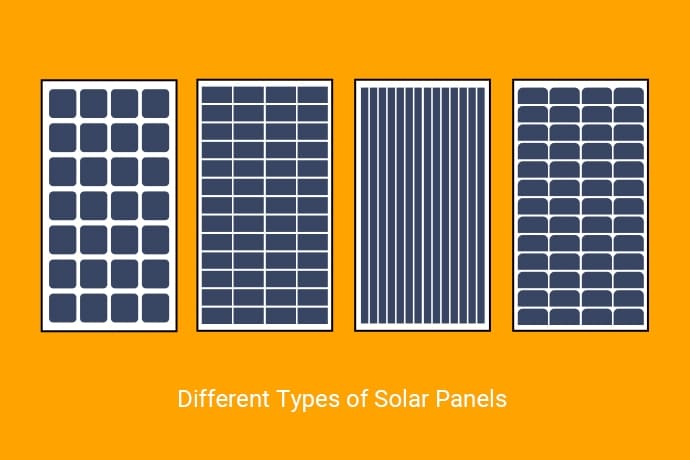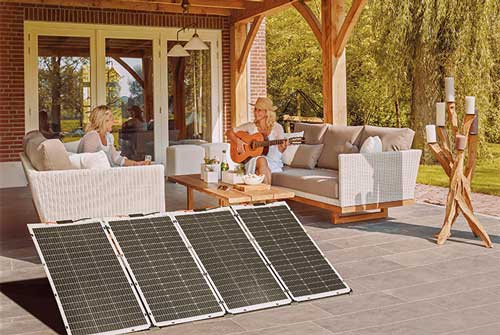The world’s energy landscape is rapidly evolving, and solar energy is at the forefront of this transformation. Solar panels are becoming increasingly popular, with countries and individuals alike seeking to reduce their carbon footprint and decrease their reliance on traditional fossil fuels. In this article, we’ll explore how solar panels work, the benefits of using solar energy, and the impact solar panels are having on energy generation.
Table of Contents
- Introduction
- How Solar Panels Work
- Benefits of Solar Energy
- Impact on Energy Generation
- Solar Panel Efficiency
- Types of Solar Panels
- Costs and Financial Benefits of Solar Panels
- Government Incentives and Programs for Solar Energy
- Solar Energy and the Environment
- Overcoming Challenges in Solar Energy
- The Future of Solar Energy
- Common Misconceptions About Solar Energy
- Frequently Asked Questions
- Conclusion
How Solar Panels Work
Solar panels work by converting sunlight into electricity through the use of photovoltaic cells. These cells are typically made of silicon and are designed to capture photons of light, which then release electrons from the atoms in the silicon. These electrons can be captured by conductive metal plates within the solar panel, generating an electrical current that can be used to power homes, businesses, and even entire communities.

Benefits of Solar Energy
One of the primary benefits of solar energy is that it is renewable and therefore sustainable. Unlike fossil fuels, which are finite resources, sunlight is abundant and readily available. Solar energy is also incredibly versatile and can be used in a variety of settings, from remote rural areas to urban city centers. Additionally, solar energy is emissions-free, meaning that it does not release harmful pollutants into the environment, making it a cleaner and more environmentally-friendly source of energy.
Impact on Energy Generation
The impact of solar energy on energy generation cannot be overstated. As more and more individuals and organizations make the switch to solar energy, traditional fossil fuel-based energy generation is becoming increasingly obsolete. Solar energy is also decentralizing energy generation, allowing individuals and communities to generate their own electricity and rely less on centralized power grids.
Solar Panel Efficiency
Solar panel efficiency is constantly improving, with newer models boasting higher and higher efficiency rates. Efficiency rates refer to the percentage of sunlight that is converted into usable electricity by the solar panel. Higher efficiency rates mean that more energy can be generated using fewer solar panels, making solar energy more cost-effective and accessible.
Types of Solar Panels
There are several different types of solar panels, each with its own unique characteristics and advantages. Some of the most common types include monocrystalline, polycrystalline, thin-film, and bifacial solar panels.

Costs and Financial Benefits of Solar Panels
The cost of solar panels has decreased significantly in recent years, making them a more accessible and affordable option for many individuals and organizations. Additionally, solar panels offer significant financial benefits, including reduced energy bills, increased property values, and potential tax credits and rebates.
Government Incentives and Programs for Solar Energy
Many governments around the world offer incentives and programs to encourage the adoption of solar energy. These can include tax credits, rebates, and subsidies for the installation of solar panels and other renewable energy technologies.
Solar Energy and the Environment
Solar energy has a much lower environmental impact than traditional fossil fuels, but it is not without its environmental considerations. The manufacturing and disposal of solar panels can have negative environmental consequences, and the environmental impact of large-scale solar farms should also be carefully considered.

Overcoming Challenges in Solar Energy
Despite its many benefits, there are still several challenges that need to be overcome in order to fully realize the potential of solar energy. These include issues such as intermittency, storage, and transmission. Solar energy is dependent on sunlight, which can be inconsistent depending on factors such as weather patterns and time of day. This means that energy storage solutions are needed to ensure a consistent supply of electricity. Additionally, transmission infrastructure may need to be upgraded to accommodate the decentralized nature of solar energy generation.
The Future of Solar Energy
The future of solar energy is bright, with many experts predicting continued growth and innovation in the industry. As technology advances and costs continue to decrease, solar energy is expected to become an increasingly important source of electricity generation around the world.
Common Misconceptions About Solar Energy
Despite its growing popularity, there are still several common misconceptions about solar energy. Some of these include the idea that solar panels are too expensive or inefficient, that they only work in sunny climates, or that they require a lot of maintenance. In reality, solar energy is becoming more affordable and efficient every year and can be used in a wide range of environments.
FAQs
| Q1:How do solar panels work at night or on cloudy days? |
| Solar panels require sunlight to generate electricity, so they are less efficient on cloudy days or at night. However, energy storage solutions can be used to ensure a consistent supply of electricity. |
| Q2:Are solar panels expensive to install? |
| The cost of solar panel installation has decreased significantly in recent years, making them a more accessible option for many individuals and organizations. |
| Q3:Can solar panels work in cold or snowy climates? |
| Yes, solar panels can still generate electricity in cold or snowy climates, although their efficiency may be slightly reduced. |
| Q4:What happens to solar panels at the end of their lifespan? |
| Solar panels can be recycled or disposed of responsibly at the end of their lifespan. |
| Q5:How can I determine if solar panels are a good option for my home or business? |
| A solar energy professional can assess your energy needs and help determine if solar panels are a good fit for your specific situation. |
Conclusion
Solar panels are revolutionizing energy generation, offering a sustainable and environmentally friendly alternative to traditional fossil fuels. As technology continues to advance and costs decrease, solar energy is expected to become an increasingly important source of electricity generation around the world. Despite some challenges and misconceptions, solar energy has the potential to help us create a more sustainable and equitable energy future.
Solar panels work by converting sunlight into electricity through the use of photovoltaic cells. These cells are typically made of silicon and are designed to capture photons of light, which then release electrons from the atoms in the silicon. These electrons can be captured by conductive metal plates within the solar panel, generating an electrical current that can be used to power homes, businesses, and even entire communities.

























